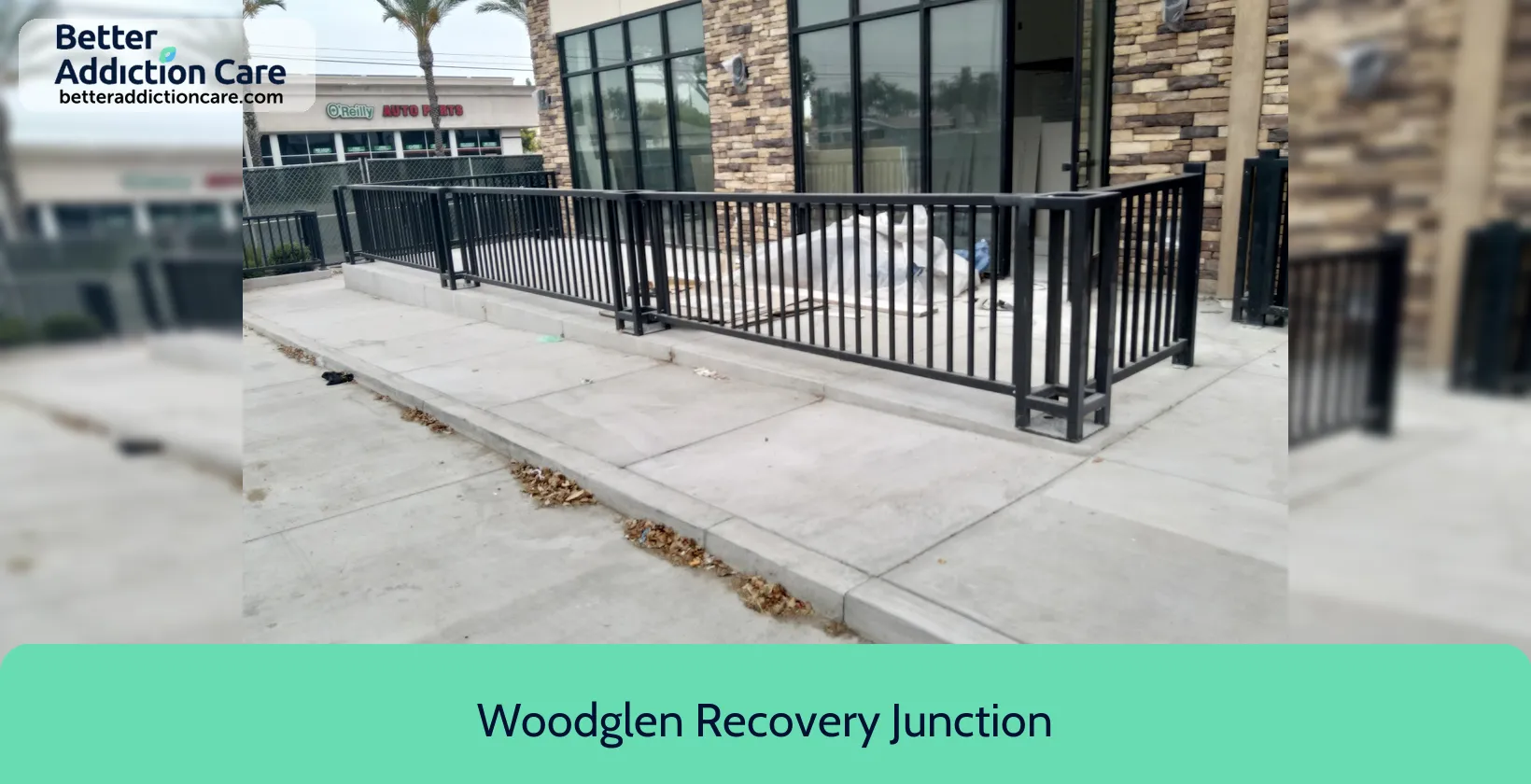Woodglen Recovery Junction - East Commonwealth Avenue

Overview
Woodglen Recovery Junction - East Commonwealth Avenue is located in Fullerton, California. This facility provides comprehensive inpatient treatment for individuals dealing with alcohol and substance addiction. The program includes 12-step meetings, individual counseling, family therapy sessions, and aftercare services. Group therapy sessions provide a supportive environment where clients can share their experiences and learn from others facing similar struggles.
Family support is a critical component of the treatment program at Woodglen Recovery Junction. Family therapy sessions are designed to involve loved ones in the recovery process, helping to rebuild relationships and establish a strong support system.
Woodglen Recovery Junction also offers robust aftercare services to ensure continued support for clients after completing the inpatient program. These services include ongoing counseling, support groups, and access to community resources such as employment and housing assistance. This comprehensive approach helps individuals maintain their sobriety and successfully reintegrate into society.
The facility's commitment to providing personalized care and a supportive environment makes Woodglen Recovery Junction a trusted choice for those seeking recovery from addiction.
Woodglen Recovery Junction - East Commonwealth Avenue at a Glance
Payment Options
- Cash or self-payment
- Private health insurance
- Sliding fee scale (fee is based on income and other factors)
- 90 day cost
- Self-pay options
Assessments
- Comprehensive mental health assessment
- Comprehensive substance use assessment
Age Groups
- Adults
- Young adults
Operation
- Treatment duration
- Private non-profit organization
Highlights About Woodglen Recovery Junction - East Commonwealth Avenue
6.65/10
With an overall rating of 6.65/10, this facility has following balanced range of services. Alcohol Rehabilitation: 8.00/10, Drug Rehab and Detox: 6.00/10, Insurance and Payments: 6.00/10, Treatment Options: 6.61/10.-
Alcohol Rehabilitation 8.00
-
Treatment Options 6.61
-
Drug Rehab and Detox 6.00
-
Insurance and Payments 6.00
Treatment At Woodglen Recovery Junction - East Commonwealth Avenue
Treatment Conditions
- Mental health treatment
- Alcoholism
- Opioid Addiction
- Substance use treatment
- Co-occurring Disorders
Care Levels
- Detoxification
- Aftercare
- Hospital inpatient treatment
- Hospital inpatient/24-hour hospital inpatient
Treatment Modalities
- 12-step facilitation
- Individual psychotherapy
- Trauma-related counseling
- Nutrition Therapy
- Group counseling
Ancillary Services
Special Programs
- Clients who have experienced trauma

Additional Locations
Common Questions About Woodglen Recovery Junction - East Commonwealth Avenue
Contact Information
Read our Most Recent Article About Drug Addiction
DISCLAIMER: The facility name, logo and brand are the property and registered trademarks of Woodglen Recovery Junction - East Commonwealth Avenue, and are being used for identification and informational purposes only. Use of these names, logos and brands shall not imply endorsement. BetterAddictionCare.com is not affiliated with or sponsored by Woodglen Recovery Junction - East Commonwealth Avenue.









